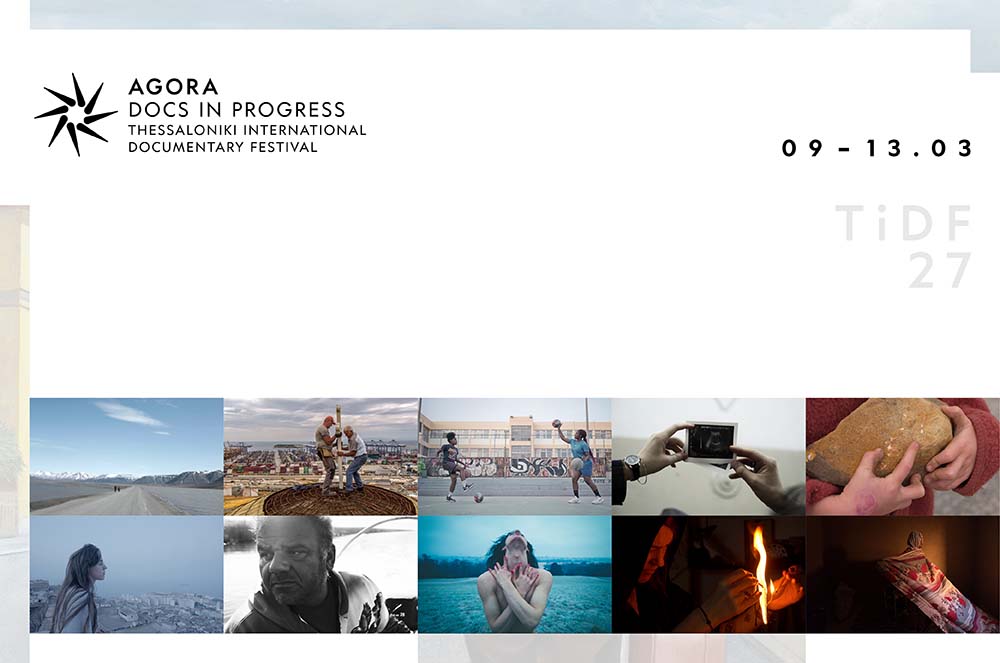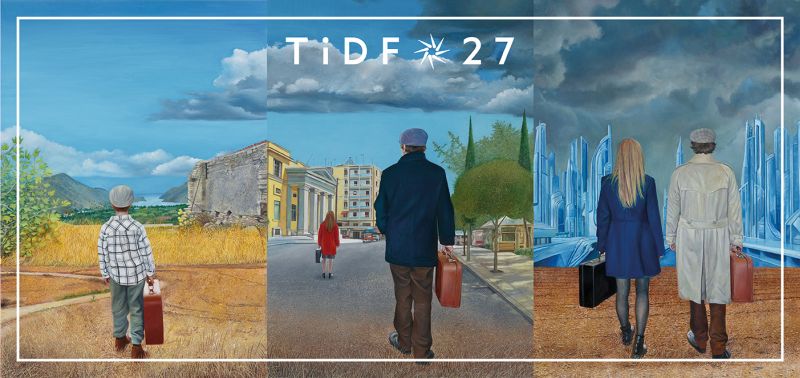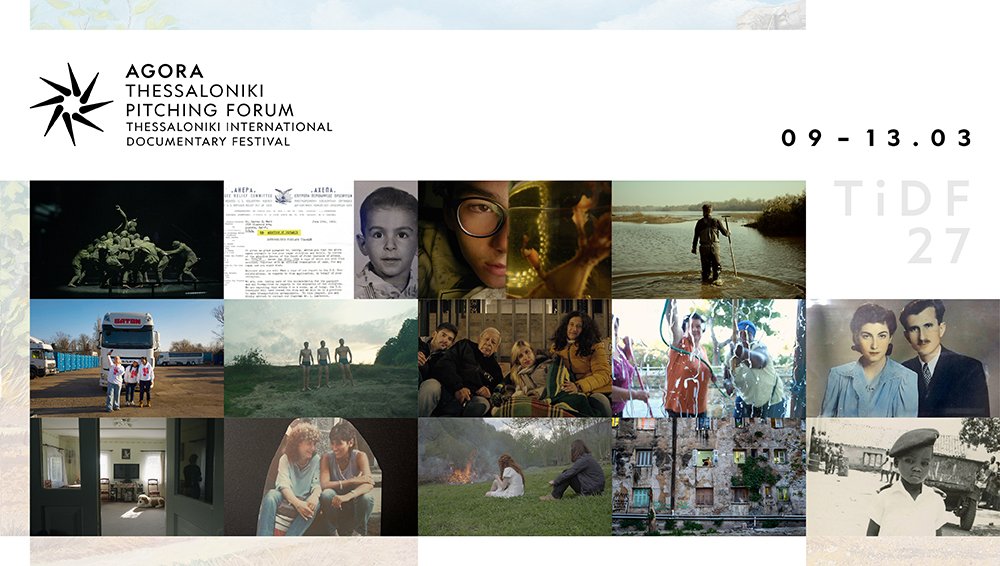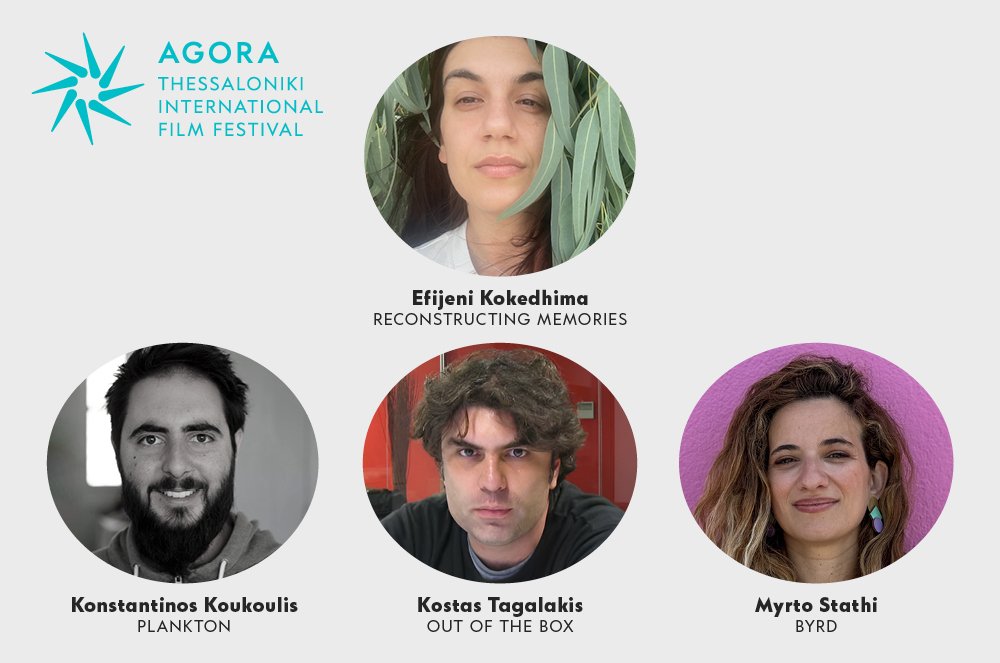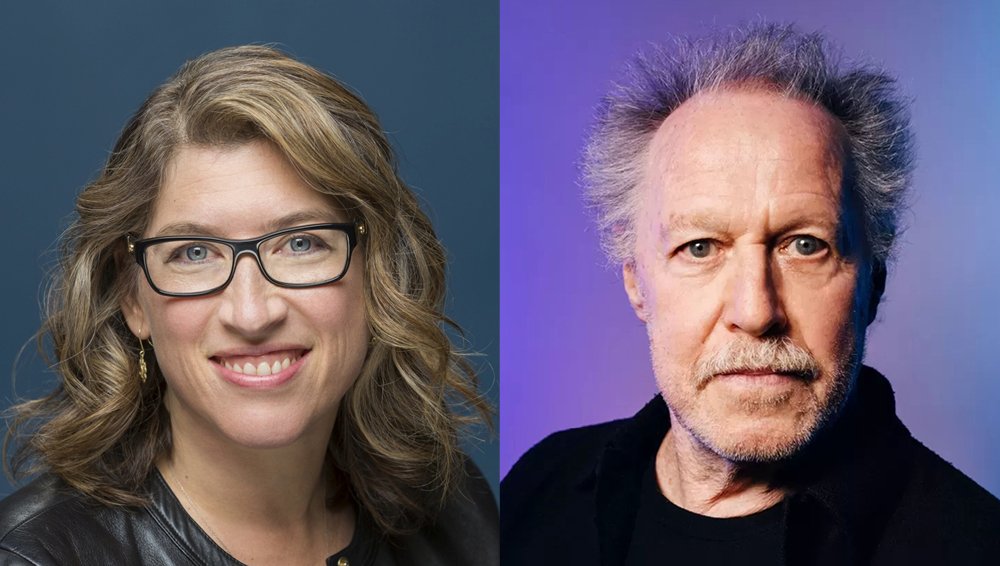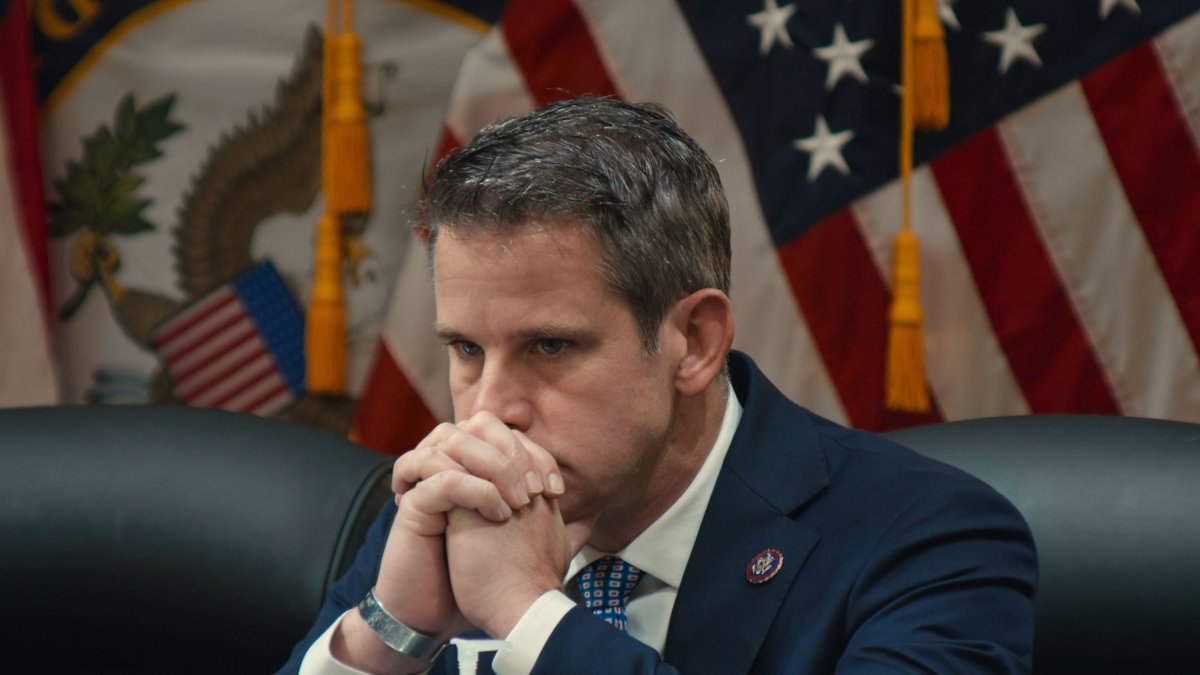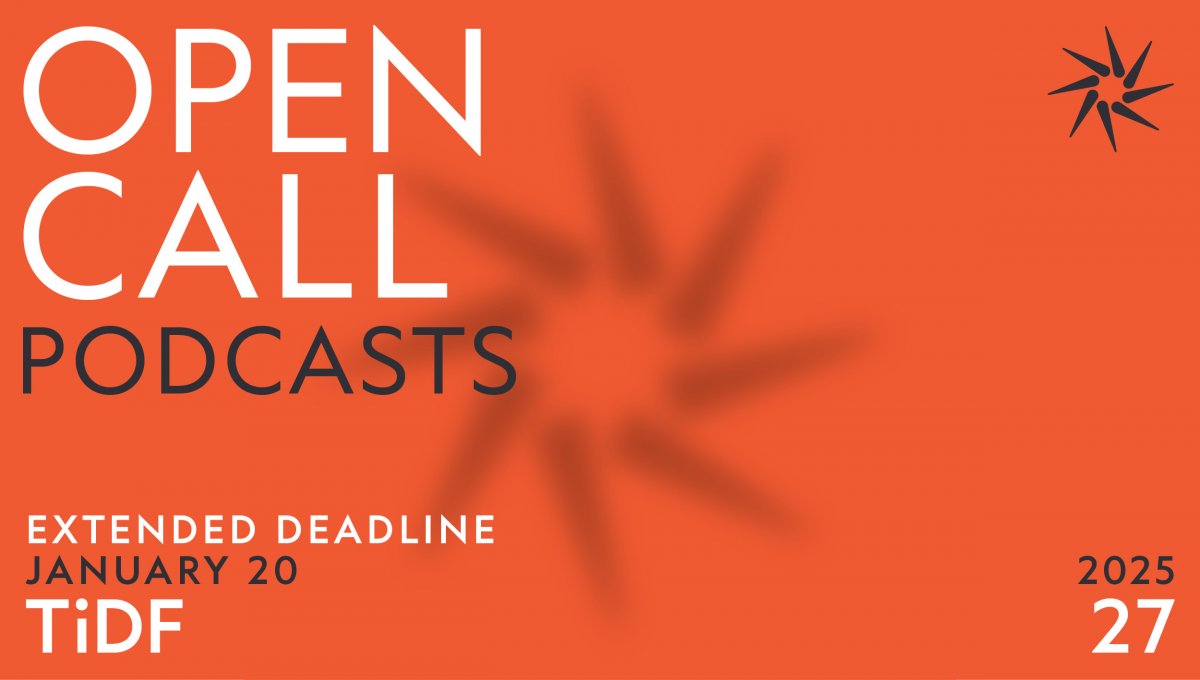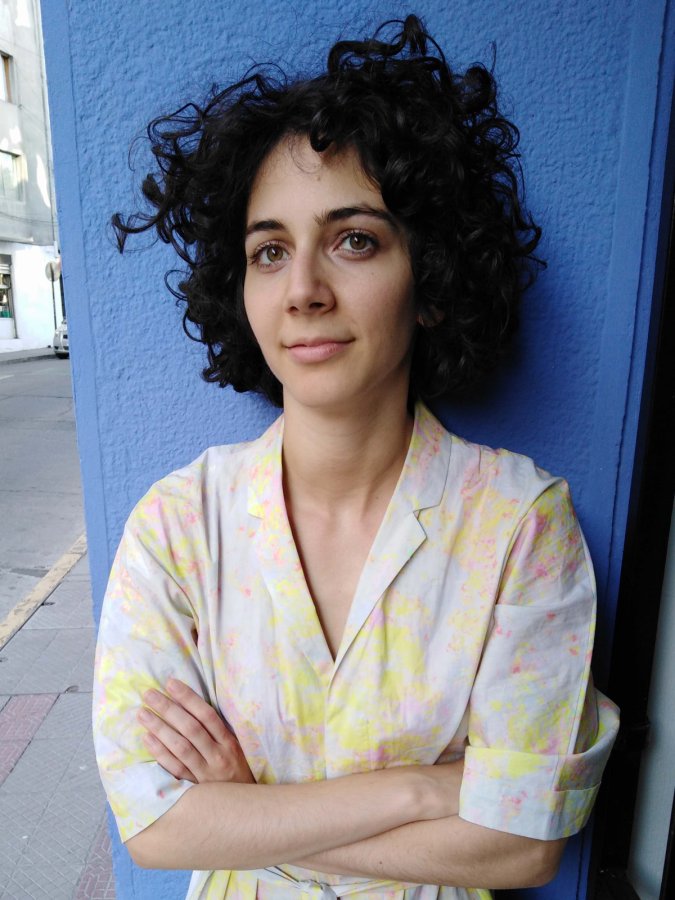Nina Davenport: Parallel lines
Nina Davenport’s film contains interviews she took from various ordinary people on a road trip she made from San Diego to New York immediately following the terrorist attack on the twin towers that shook the world. Davenport claimed that the biggest risk for the making of her film was the total absence of funding since she began shooting it simply following her creative instincts. “It’s a fact that in the United States you have to rely on your creative instincts and then pray to find the funds to distribute your work”, she said. Davenport also stated that while filming her documentaries she is forced to constantly review and revise her opinions through the elements she discovers during the process. As for the meaning of her film and what she gained from making it she said, “It’s not a documentary about September 11th. It’s a story about people who have lost something”. Finally Davenport mentioned her film’s relationship with the stereotypes and cultures throughout the world. “It was a chance to deeply examine America and not just take a look at it. There are points in the film that take you beyond the stereotypes that define America”.
Karin Hayes: The kidnapping of Ingrid Betancourt
Karin Hayes’ film is about a real story: the kidnapping of a politician during her pre-election campaign in Colombia. Hayes explained how she initially began to film Betancourt’s pre-election campaign until her kidnapping changed everything. She decided to continue the film and follow the course of events. “We took many risks during the making of the film but we tried to avoid making stupid mistakes that would endanger our lives, such as making a trip to S. Colombia”. Hayes spoke about her experience from making the film and how she realized how complicated political matters and their resolution can be. She also stated that through the many interviews of Betancourt’s husband and family, “I learned to comprehend other peoples’ experiences as if they were my own”. Finally, she spoke about the kidnapping and the course of events saying that Betancourt is still being kept hostage and if there is a chance for her release it seems very distant because of a number of political matters that to this day remain unsolved.
Mark Achbar: The corporation
While director Mark Achbar was shooting his film about corporations in the age of capitalism, he confronted one of capitalism’s implications since he soon ran into many financial problems for the film’s completion. Achbar spoke about his film’s theme and the difficulties that arise from the complexity of a corporation. “Capitalism is a very general notion, it has no limits. My problem was how to work with this notion and put it together into a film. There is always the possibility of failure”. He also mentioned the threat of lawsuits he encountered, as corporations always aspire to control their image. As for his opinion about how corporations are uncontrollable entities Achbar said, “These institutions didn’t always exist. Man created them and man can change them”. Achbar claimed that corporations should be controlled and noted that, “We should always differentiate between the institution of a modern corporation and the people behind it. We must not disregard the human aspect”. Finally Achbar spoke about what he gained from the making of his film. “I learned about financial matters and also that I had to purchase a gas mask for a protest, as well as how to maintain a love affair along with my work”.
Luigi Falorni: The story of the weeping camel
The film is about a ritual in the Mongolian desert. Falorni mentioned that he started with a script in hand, and the difficulty arose when he began to look for the characters for his film and, of course, the camels. He also mentioned the problems he ran into during the filming, as he and the crew had to live in the desert for two months like nomads. Falorni feels lucky, though, that he ran into no political problems. As he said, the whole idea began when his co-director, who is from Mongolia, told him about the ritual. Falorni found the idea extremely interesting and touching and he decided to film it. He also noted the local population’s need to upkeep their traditions saying that, “it’s part of their culture: time and passing traditions from one generation to the next”. Finally, he mentioned how fulfilling the making of the film was for him: “I discovered the reason I make films. I begin with an initial curiosity and then I realize that what I see, is something I actually carry within me”.
Scott Millwood: Wildness
The film deals with two prominent photographers and their project of photographing Australian nature. Millwood made special reference to the political danger he and other documentary filmmakers often run into when dealing with sensitive matters that bother governments, like the destruction of nature. In his case, Millwood said that the Tasmanian government was rather annoyed, but he was fortunate to see his film finished. “People don’t become keepers of Art but rather they preserve and transfer the knowledge to the next generations”, he added. Finally Millwood spoke about the reasons he makes films and what it means to him personally: “You don’t simply shoot a film, but you essentially investigate your own self”.



